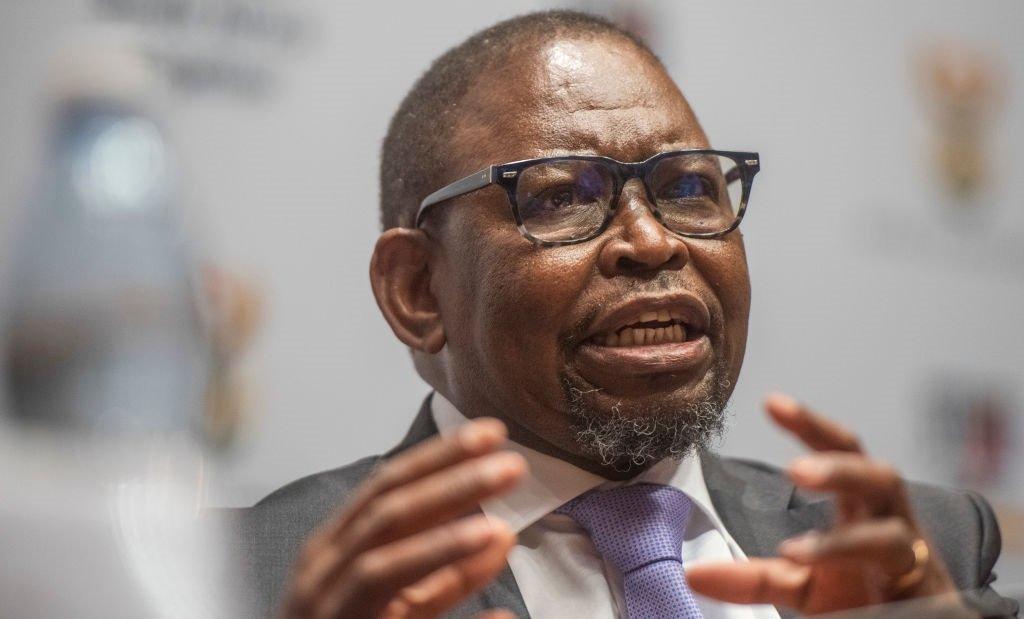Africa-Press – South-Africa. The Constitutional Court has told Finance Minister Enoch Godongwana that there was no need to suspend all government procurement and that he had “misread” their judgment on the preferential procurement regulations, handed down on 16 February.
A proper reading of the order was that although the 2017 preferential procurement regulations were set aside, they would continue to be in force for 12 months after judgment was handed down, giving Treasury until 15 February 2023 to put new regulations in place.
This means that the 2017 regulations are again in force and government entities must comply.
However, this was not obviously clear from a reading of the Constitutional Court order alone, which had arisen from an earlier ruling of the Supreme Court of Appeal. Due to confusion on the implications of the order, on 25 February, Treasury advised departments that they should hold all procurement “in abeyance” while it sought clarity from the Court.
The Treasury later advised entities and departments to apply for exemptions from preferential procurement regulations to continue issuing tenders.
READ
| No more tenders: Govt entities react to Treasury’s request as it ‘seeks clarity’
Godongwana then requested direct access to the Court to apply for a variation to clarify the judgment’s implications.
But the Court said on Monday that there should not have been any confusion about its judgment, which Godongwana had misread.
It said:
The original case was brought by Afribusiness, which sought to have the 2017 preferential procurement regulations under the Preferential Procurement Policy Framework Act declared illegal. The regulations enabled a system of “preference,” which allowed government entities to set pre-qualification criteria for tenders. For example, a tender could carry a condition that only 51% black-owned companies may apply.
The regulations were set aside by the Supreme Court of Appeal in January 2021, which gave Treasury a year to rectify the problem. But once an appeal was lodged by the finance ministry with the Constitutional Court, the clock was stopped. The clock restarted, said the Constitutional Court, after it handed down its order on 15 February.
According to the court, this should have been clear to the finance ministry, which should have read the order in the light of section 18 (1) of the Superior Courts Act. Notably, the Constitutional Court did not rule that a system of preference for previously disadvantaged groups was unlawful but that the Minister of Finance did not have the authority to set procurement regulations for all government entities. The entities themselves should do this, said the Court.
In an interview on Monday, the Acting Chief Procurement Officer of the Treasury, Molefe Fani, said that “the Constitutional Court says that we should have known that the validity period was available to us. We are now back in the position that we were before, which is [that] the 2017 regulations apply and we have a 12-month window to correct any errors.”
Fani said about 90 entities had applied for exemption from preferential procurement regulations. This would now fall away.
“All new quotations must be requested, and tenders must be advertised and dealt with, in accordance with the 2017 Regulations. A quotation requested or a tenders advertised before today must be dealt with in terms of the exemption and the internal procurement policy in place for the duration of the exemption. An organ of state may, however, decide to withdraw such a request for a quotation or an advert for a tender and request a new quotation or advertise a new tender that will be subject to 2017 Regulations,” said the Treasury in a statement.
The 2017 Regulations will remain in place until 15 February 2023 unless new regulations are promulgated before that date. Treasury is in the process of processing public comment on the regulations published a month ago.
It is also in the process of overhauling procurement entirely with a new Procurement Bill. The Bill will have a strong focus on transformation.
For More News And Analysis About South-Africa Follow Africa-Press






